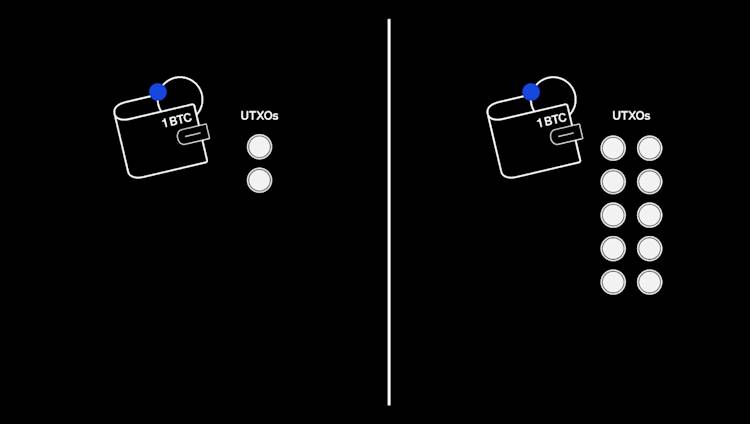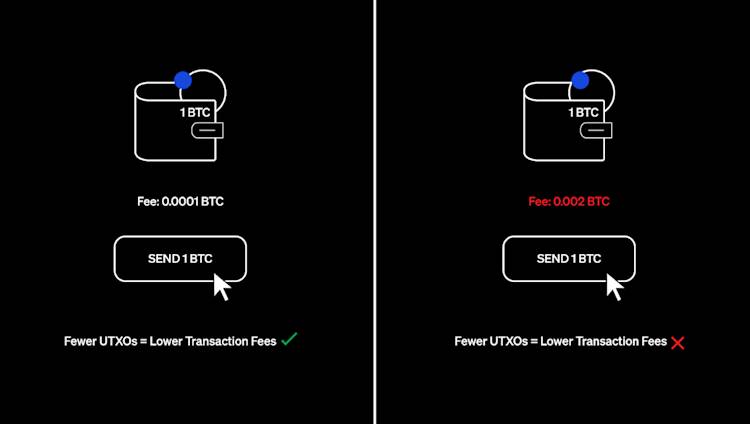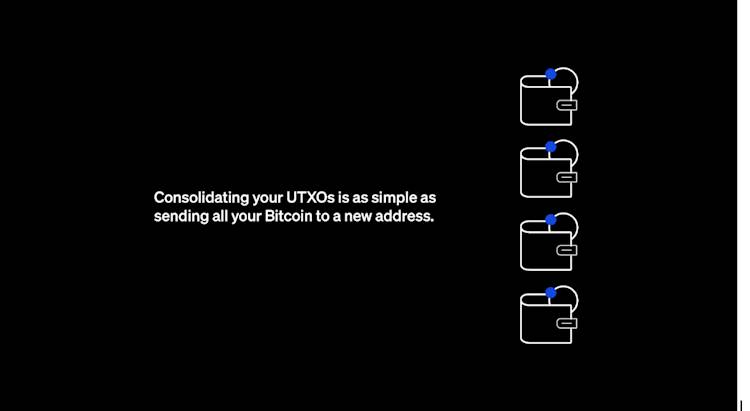If you’ve ever sent or received bitcoin—whether just a few sats or a hefty stack of BTC—you’ve interacted with Unspent Transaction Outputs, or UTXOs, even if you didn’t realize it. These digital building blocks are the backbone of bitcoin’s transaction system, silently ensuring that every payment flows securely and efficiently across the network.
Though they might sound like obscure technical details, UTXOs play a crucial role in how your wallet functions and how much you pay in transaction fees. Understanding them isn’t just for blockchain developers—it’s a fundamental part of being a savvy bitcoin user. A little knowledge of UTXO management can help you optimize your transactions, minimize fees, and make the most of your bitcoin holdings. In this guide, you’ll learn what UTXOs are, how they impact your wallet, and why mastering them can make your bitcoin experience smoother and more cost-effective.
What Are UTXOs?
UTXOs are unlike a bank account that tracks one fluid number. Instead, bitcoin treats your funds as distinct pieces. Picture your bitcoin wallet like a physical one, with a handful of separate “bills,” each holding their unique value. These bills are your UTXOs—unspent outputs from past transactions you’ve received. For instance, if your wallet holds 0.52 BTC, that balance might be a patchwork of UTXOs, like 0.1 BTC, 0.25 BTC, and 0.17 BTC, similar to how $20 in your wallet could be made up of one $10 bill and two $5 bills.

When you send bitcoin, your wallet doesn’t just dip into one big pool—it selects and combines your UTXOs to match the amount you need. Any excess comes back to you as “change” in the form of a shiny new UTXO. It’s a bit like paying with cash: if you owe $5 but only have a $10 bill, you hand over the whole thing and get $5 back. Bitcoin follows the same logic. UTXOs can’t be sliced up, so the entire “bill” gets spent each time, with leftovers rerouted back to your wallet.
Every bitcoin transaction has two parts: inputs and outputs. The inputs are the old UTXOs you’re spending, while the outputs are the new UTXOs created—one for the recipient and often one for your change. Simple, right?
Here’s where it gets interesting: transactions can have multiple inputs and outputs. The more UTXOs you use as inputs, the bigger the transaction becomes in terms of data size. And in bitcoin, fees aren’t based on the amount you’re sending—they’re tied to the data size of the transaction. More UTXOs = bigger transactions = higher fees.
Why Fees Depend on UTXOs
Let’s break that down with an example. Sending 1 BTC using three UTXOs will cost less in fees than sending the same 1 BTC using 17 UTXOs. It’s all about efficiency. Back in 2021, someone famously moved $2 billion in Bitcoin for just 78 cents. How? They planned their transaction to use minimal UTXOs, keeping the data size tiny. Smart UTXO management can save you a lot, especially if you’re dealing with lots of small payments over time.

Who Needs to Care About UTXOs?
Not everyone needs to obsess over UTXOs. If you’re a long-term holder who rarely moves bitcoin, you’re probably fine. But if you’re stacking sats—buying small amounts regularly—or running a business with frequent transactions, UTXOs can pile up. Lots of tiny UTXOs mean higher fees down the road when you finally decide to spend or have to consolidate them.
Managing your UTXOs ahead of time can save you from a large transaction fee later.
The Fix: UTXO Consolidation
Good news—there’s a way to manage this. UTXO consolidation means combining small UTXOs into fewer, larger ones to save on future fees. It’s as straightforward as sending bitcoin to yourself in a single transaction. Say you’ve got 10 small UTXOs worth 0.1 BTC each. You could send them all to one address, paying a fee now—maybe $50—to create a single 1 BTC UTXO. That might sound steep, but if Bitcoin’s price rises or the network gets congested (like during past cycles), fees could skyrocket later. Consolidating now could save you a lot of money later.
The trick is timing. You’ll want to consolidate when fees are low, which happens periodically during market lulls or times when people simply are not using the network as much. A handy tool like mempool.space can show you current bitcoin fee rates so you can pick the right moment.

So, the next time you’re stacking sats, sending BTC to a friend, or even just checking your wallet balance, give a quick nod to your UTXOs. They’re working hard behind the scenes, and a little attention to them now can pay off later. Double-check those addresses before you hit send—mistakes can be costly in bitcoin. Keep an eye out for those low-fee windows to consolidate if they fit your strategy.
Bitcoin’s beauty lies in its blend of simplicity and depth, and UTXOs are a perfect example of that. They’re straightforward enough to grasp, yet they open the door to smarter, more intentional use of the network. If you’re a business or institution that is looking for help consolidating your UTXO, or learning more about the digital asset space, connect with us here.
Table of Contents
The latest
All NewsAbout BitGo
BitGo is the leading infrastructure provider of digital asset solutions, delivering custody, wallets, staking, trading, financing, and settlement services from regulated cold storage. Since our founding in 2013, we have focused on enabling our clients to securely navigate the digital asset space. With a large global presence through multiple regulated entities, BitGo serves thousands of institutions, including many of the industry's top brands, exchanges, and platforms, as well as millions of retail investors worldwide. As the operational backbone of the digital economy, BitGo handles a significant portion of Bitcoin network transactions and is the largest independent digital asset custodian, and staking provider, in the world. For more information, visit www.bitgo.com.
©2025 BitGo Inc. (collectively with its affiliates and subsidiaries, “BitGo”). All rights reserved. BitGo Trust Company, Inc., BitGo Inc., and BitGo Prime LLC are separately operated, wholly-owned subsidiaries of BitGo Holdings, Inc., a Delaware corporation headquartered in Palo Alto, CA. No legal, tax, investment, or other advice is provided by any BitGo entity. Please consult your legal/tax/investment professional for questions about your specific circumstances. Digital asset holdings involve a high degree of risk, and can fluctuate greatly on any given day. Accordingly, your digital asset holdings may be subject to large swings in value and may even become worthless. The information provided herein is not intended for distribution to, or use by, any person or entity in any jurisdiction or country where such distribution or use would be contrary to law or regulation. BitGo is not directing this information to any person in any jurisdiction where the publication or availability of the information is prohibited, by reason of that person’s citizenship, residence or otherwise.




